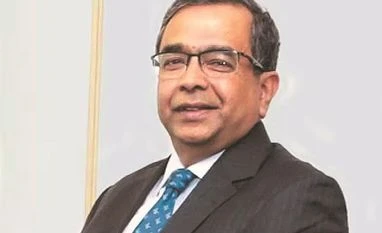The WHO early this month declared that Covid-19 no longer represents a global health emergency. K Srinath Reddy, founder (past) president and distinguished professor at Public Health Foundation of India (PHFI), spoke to Sohini Das about areas where the world must continue investing for understanding Covid-19.
Here are edited excerpts from the interview.
Was this the right time for the WHO to announce the end of the pandemic
It could have been done a little earlier. However, some parts of the world had a fairly high number of daily cases, and even deaths. There was a surge in cases after the sudden opening up of China, and there were predictions through incorrect models as it appears of a large number of deaths in China. The World Health Organization may have thus decided to be a bit more cautious and wait for some more time before declaring the end of Covid-19 as a global health emergency.
What kind of investments need to continue for Covid-19 in India and globally?
We need to build very robust primary health systems—both in urban and rural primary healthcare. Then we need to build adequate primary healthcare workers, critical care personnel, lab technicians, frontline workers, and ensure an equitable distribution. We not only have a shortage of healthcare workers, they will also fall sick during a pandemic. So, we need to create a slack capacity of healthcare workers or additional reserves.
More From This Section
Do you think investments in research for Covid-19 therapy or vaccines will come down now?
There is no sense of urgency for Covid-19 as such, as Omicron has settled down as the dominant variant of the virus. It does not invade the lungs as often. Even though it is more infectious, in terms of illness, it is much milder than the earlier forms. This situation may not persist. We may get a new variant due to antigenic shift where in the body of an immuno-compromised person or in the body of an animal the genetic material of this virus combines with the genetic material of some other virus and creates a very virulent form of the virus. We need surveillance to detect it first. No mass testing is required anymore.
All cases of serious respiratory illness admitted in hospitals need to be tested, and if found positive, the samples need to be sent for genomic sequencing. We need to find out if the emerging variants are capable of causing serious disease. Wastewater surveillance is also very useful to detect new variants. It should be a part of urban Covid-19 surveillance. Moreover, we need to test wastewater from international flights as we cannot test every international passenger.
Do we need annual Covid-19 vaccines for adults?
We need more evidence for this. Children are not at high risk. Elderly and immuno-compromised (persons) are at risk. While it's advisable to boost their immunity by giving vaccine boosters, whether annual or not needs to be seen, but the rest of the population does not need it. Moreover, we need to be cautious about excessive use of booster dose—because if these are repeatedly challenging the body’s immune system then there will be something called T-Cell exhaustion. T-Cells are memory cells of our immune system. The body’s immune system may not have the capacity to react to a new variant, because it is getting used to generating an immune response against the vaccine induced antigen only. Also, it can lower our capabilities to fight against other pathogens. If most of the body’s energy is spent in fighting Covid19 antigen, then the body’s immune system may not have the capacity to fight other pathogens. We have to do a risk-benefit analysis.
What are the key lessons learnt in the last three years?
We must protect our ecological barriers so that the virus does not spill over very easily from wildlife to veterinary populations and then spread through human habitat. We need to maintain this ecological sanctity. If we flout this, then we stand exposed to many future pandemics of the zoonotic nature.
We also need early alert systems globally, so that people can start taking preventive measures. Strong surveillance systems are needed as well, along with accurate data collection. The alerts and data must cross international borders before viruses do.
We need empathetic, efficient and equitable health systems that function predictably during the normal state. Otherwise we cannot have a swift, effective surge response when we need it. We also have to ensure that we have capacities to make drugs and vaccines in case of a need. Every country would not be able to do that; therefore, we need to build global solidarity.
The Pandemic Treaty, which is now being negotiated by the WHO, along with the revision of the International Health regulations to make them stronger. Both these are expected to be completed by 2024 and would give us a roadmap to deal with future pandemics.
)